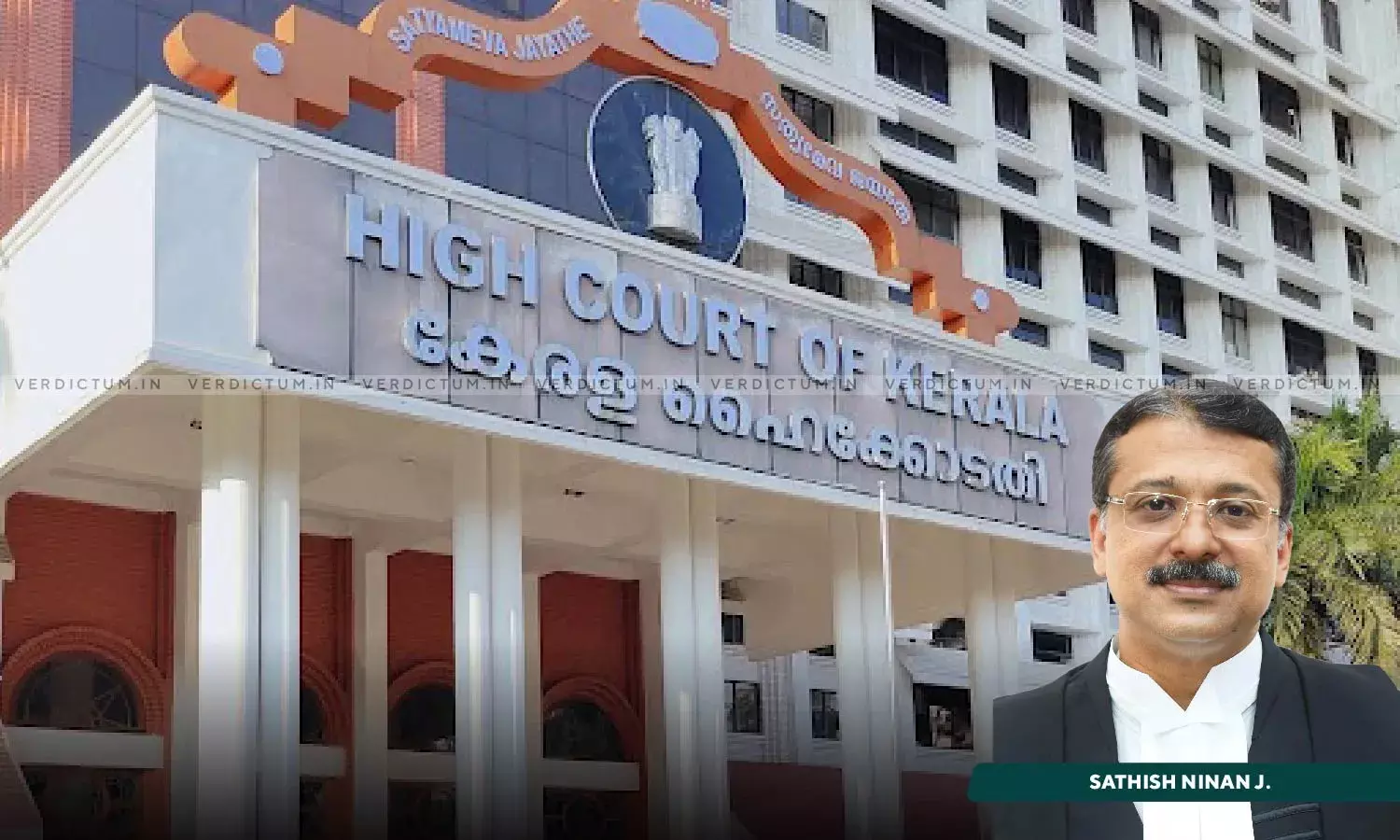When Both Buyer & Seller Are At Fault Or Not Eager In Performance Of Agreement, Buyer Is Entitled For Charge Over Property For Sale Consideration: Kerala HC

The Kerala High Court held that when both buyer and seller are at fault or are not eager in the performance of an agreement, the buyer is entitled for charge over the property for the sale consideration paid under the Transfer of Property Act, 1882 (TPA).
The Court held thus in an appeal filed by the plaintiff/buyer against the dismissal of a suit for return of advance sale consideration.
A Single Bench of Justice Sathish Ninan observed, “The defendants allege that the plaintiff did not have sufficient funds with him to get the sale deed executed. The plaintiff was evading performance of the contract, it is alleged. No evidence is adduced by the plaintiff to prove that he was possessed of sufficient means to go ahead with the transaction. This tells upon the readiness of the plaintiff to go ahead with the transaction. On appreciating the entire evidence it appears that both the plaintiff and the defendants (their predecessor Rosamma) contributed to the non-performance of Ext.A1 agreement. As held supra, in such a situation, when both the plaintiff and the defendant are at fault or were not eager in the performance of the agreement, the plaintiff is entitled for charge over the property for the sale consideration paid. A decree is liable to be granted to the plaintiff, as above.”
Advocate B. Krishnan appeared for the appellant/plaintiff while Advocate M. Narendra Kumar appeared for the respondents/defendants.
Facts of the Case -
An agreement was entered into between the plaintiff and the predecessor of the defendants. An extent of 25 cents with the residential building was agreed to be conveyed by the defendants to the plaintiff for a sale consideration of Rs. 62.50 lakhs and on the date of agreement, an amount of Rs. 12.5 lakhs was paid towards advance sale consideration. The balance consideration was payable on or before May 11, 2014 and alleging breach of the agreement by the defendants, the suit was filed for return of the advance sale consideration. The defendants admitted the agreement by the predecessor and it was contended that the agreement was entered into for raising of funds for the treatment of their mother.
Consequently, due to failure of the plaintiff to pay the balance sale consideration, there occurred breach. Predecessor had entered into an agreement for sale with the third party for purchase of the property and an amount of Rs. 13 lakhs was paid towards advance sale consideration. But to due to failure of the plaintiff to perform the agreement, the said transaction could not go through. Though a suit was filed for return of the advance sale consideration, the same was dismissed for the inability of predecessor to pay court fee. It was contended that the suit was barred by limitation and on these allegations, a counter claim was raised for damages of Rs. 13 lakhs. The Trial Court dismissed the suit and the counter claim.
The High Court in view of the above facts noted, “With regard to the first part of the relief claimed, that is, a personal decree, Article 54 of the Limitation Act applies. The period provided is three years from the date of accrual of the cause of action. It is conceded before me, and rightly so, that the suit has been filed beyond that period. The trial court was right in having held that the first part of the claim is barred by limitation.”
The Court added that when charge is claimed over the property, Article 62 of the Limitation Act applies and the plaintiff is entitled for a period of twelve years to institute the suit and therefore, the suit seeking a charged decree over the plaint schedule property is well within the period of limitation.
“… the suit in so far as it seeks to enforce the charge over the plaint schedule property, is within the period of limitation. … Thus understanding the scope of the first limb of Section 55(6)(b), it is held that, where the non performance is not due to the fault of the buyer and the seller, or where both are at blame/default, or where the default occurred at the hands of the vendor, it cannot be said that the buyer has improperly declined to accept delivery and hence he is entitled for charge over the property for the purchase price paid and interest”, it held.
The Court, therefore, granted a decree for realisation of Rs. 12,50,000/- with an interest at the rate of 6% per annum.
Accordingly, the High Court allowed the appeal and set aside the decree and judgment of the Trial Court.
Cause Title- Ahammedkutty Bran v. Sukumaran & Anr. (Neutral Citation: 2024:KER:1509)
Appearance:
Appellant: Advocates B. Krishnan and R. Parthasarathy.
Respondents: Advocates Anchal C Vijayan and M. Narendra Kumar.


